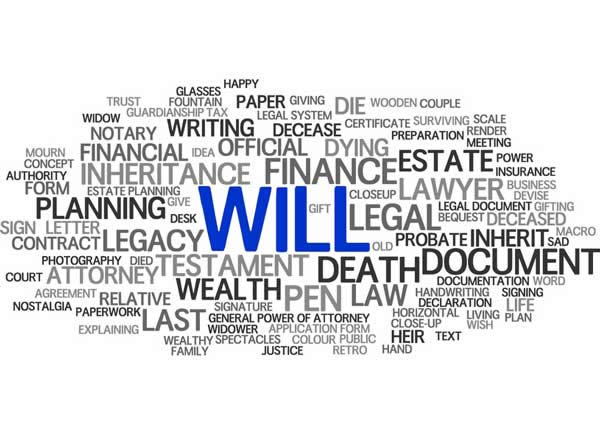
 22nd Apr 2018
22nd Apr 2018
 Retirement
Retirement
 By Ashley Shepherd
By Ashley Shepherd
If you do not write a Will, you have no control over what happens to your estate – all your possessions, property, and money – after you die. Without a Will, you are said to have died “intestate”, and your surviving relatives and friends are likely to be left with anguishing decisions – not to mention time and hassle – about the distribution of your assets.
As a last resort, the distribution of your assets may need to be determined by intestacy laws and the courts, explains Citizens Advice.
By writing a Will, you may even be able to preserve the value of your estate, since a Will may help to reduce the amount of Inheritance Tax for which your estate is liable, suggests the Money Advice Service.
The purpose of your Will
In essence, your Will conveys two critical pieces of information:
- By making a Will, you identify who you want to receive your possessions, property and money – your so-called “beneficiaries”.
- Your Will also identifies who it is you want to manage and handle your estate in accordance with your last wishes – that person (or persons, since you may name more than one) is called the “executor”, who is responsible for the entire process of managing your estate during the period known as “probate”.
Many people also take the opportunity when writing a Will, to say how they want their funeral to be conducted – the type of ceremony to be held and whether you want a cremation or burial.
Your executor is responsible for making every effort to ensure that the wishes expressed in your Will are carried out just as you intended – provided, of course, that you have instructed nothing that is against the law.
How to write a will
When tackling the question of how to write a Will in the UK, remember that the choice is yours – there is no wrong, or right way and your options include:
Writing it yourself
This is probably the cheapest way and may be quite sufficient if your affairs and the value of your estate is straightforward and modest – but you need to be aware that mistakes may be costly and jeopardise the intentions and wishes you want it to convey.
Low-cost templates are available from stationers and online to provide a model and to help you cover the basics.
But importantly, for the Will to be valid, it must be signed, dated and duly witnessed, whilst any former Wills you might have made must also be appropriately revoked.
Will-writing services and advice
A middle course of action – providing greater security than doing it yourself, and costing less than formally instructing a solicitor – is to use a will-writing and legal advice service.
In addition to helping with writing a Will, these services may also provide round-the-clock legal advice, updates to any existing Will free of charge, and possible discounts on a range of other legal services.
Instructing a solicitor
The more expensive, but professionally certain way of making a Will is to instruct a solicitor to do so on your behalf. If your domestic affairs are complicated – by former spouses or estranged children, for example – you may need a solicitor’s help in ensuring that beneficiaries are identified in precisely the way you wish.
The professional input of a solicitor is also likely to be necessary if you have a high-value estate or anticipate more complicated tax liabilities (Inheritance Tax, for instance, is currently payable on most estates valued at more than £325,000, warns the Money Advice Service).
Choosing an executor
When naming your executor or executors, remember that the role may prove complicated and onerous, with even the most straightforward of probates taking several months to conclude. Maturity (any executor must be at least 18 years old) and responsibility, therefore, are likely to be key traits to choosing wisely.
A common misconception is that no one you want to name as a beneficiary in your Will may also be an executor of your estate. That is not true. The fact that you have chosen someone to be your executor does not rule them out of your Will.
Indeed, it's common for spouses, partners and children to act as executors, at the same time as their being principal beneficiaries of your Will.
Nevertheless, you might want to consider appointing both a family member and a professional (such as a solicitor or an accountant) as joint executors – since this also covers the possibility of one of your executors dying before you do.
To make sure that your estate is handled in the way you want and that certain beneficiaries receive their share of your possessions, property and money, it is important that you make a Will.
All the information you need is right here
Let us help you get started